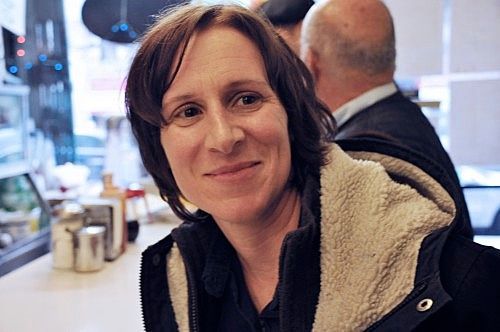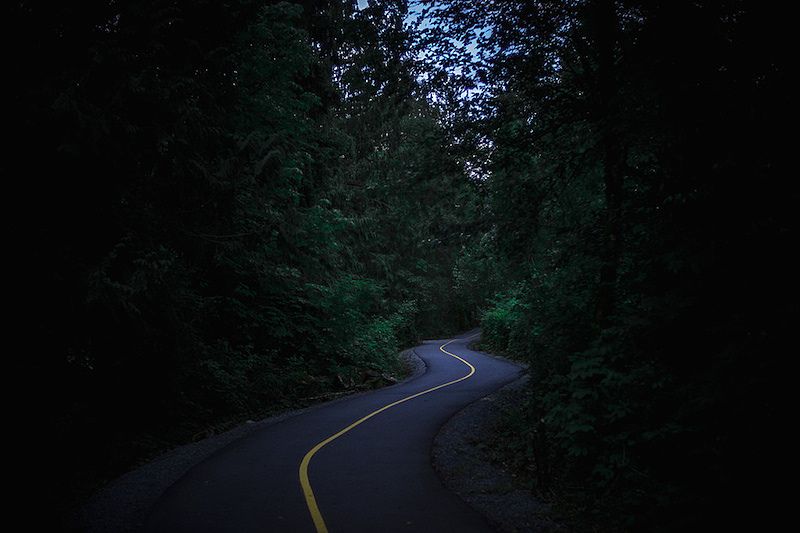Long Journeys in the Looming Northwest: Kelly Reichardt and 'Night Moves'
Director Kelly Reichardt talks to Marty Jones about learning to play by certain rules for her new film "Night Moves", and why scouting a location is about more than just a pretty backdrop.
Over the past ten years, American director and college teacher (she teaches Film and Visual Arts at Bard, a steady income between pictures) Kelly Reichardt has released a steady stream of indelible film, and in the process has built up a small yet devoted following. But despite a swell of critical praise and increasingly star studded casts, Reichardt’s films are still like some of her characters, largely self-reliant and existing on the fringes of a bigger community.
Old Joy (2006), Wendy and Lucy (2008) and Meek’s Cutoff (2010) are each distinct in their style and pace, but each inhabits the same "road movie" structure, and the same eerie landscapes of the American Northwest. Reichardt captures characters at specific times and moments, offering a glimpse of their journeys and realities, while also speaking to some of the wider stories that their lives tell.
Reichardt’s latest film, Night Moves, stars Jesse Eisenberg, Dakota Fanning and Peter Sarsgaard as a trio of activists who plan an attack on a hydroelectric dam in Portland in protest of its environmental impact. But however admirable the trio’s intensions may be, they're not prepared for the personal psychological aftermath which follows.
Night Moves is a deft, unusually-paced thriller; the tension is built up layer upon layer before being dispersed mid-picture only to be followed by a creeping sense of paranoia. Reichardt and her writing partner, Jonathan Raymond, have crafted a unique film which explores the ideas of actions and consequences of activism in our current climate. It’s a fantastic piece of minimalism which stands in direct contrast to the any Hollywood blockbuster treatment of the same scenario.
Night Moves opens in New Zealand and Australian cinemas this week. I was fortunate enough to speak with Kelly by phone before the release.
You’ve worked with Jonathan Raymond for the last few films now. Was that something you planned or did it just happen naturally?
It’s over now, but yeah - it happened naturally. [Laughs] We’re close friends and so one thing just sort of rolled into the next, and we spend a lot of time together and we’re on the phone every day.
The first one was just a cold call from me to him asking if I could have a short story of his, then after that we started coming up with the ideas together of what we were going to do, so yeah it all just kind of happened organically. Somewhere in-between those four movies he managed to have two children and so now it’s something about having to support a family. My films offer an experience but they don’t offer a living. Actually he’s just finishing a new novel, and is working with Todd Haynes on some things.
In terms of your recent films, how has making them, and their subsequent relative success, affected you and your work teaching as well?
It’s weird. Night Moves feels like the film that didn’t happen somehow. I was so involved with the release of the other movies previously, when I was working with Adam Yauch and his company Oscilloscope. This was a very different experience and I wasn’t really involved, so I have a feeling of ‘What? That movie came out?’
But it hasn’t really affected life at all, I have to say. I mean I like the film and I got to make it and that’s great, but there’s not really a lot of life-changing things that go on with these movies, beyond the experience. We all make these great friendships on the films, and they’re rewarding, and making a film helps me to teach because I’m not an academic, and teaching helps me to be in a place where I’m just constantly deconstructing film and so it helps my filmmaking I think.
People generally have a preference for closure, and I guess your films aren’t necessarily ones which typically deliver that. What do you think about ‘closure’ as part of a film or story?
Yeah I’m not that into closure I guess. On some level, I see all the films as kind of road movies. You just sort of drop in and spend a small amount of time with these characters whose lives are already underway when you get to them. It never seems quite right to put any definitive closure on anything, because it just seems to me like they’re all stories in motion, we’re just parachuting in for this short amount of time.
But apparently people like endings, I’ve heard, I’ve heard. [Laughs]<
What was it like to work with the thriller genre, which is what Night Moves hews closer to than your previous work?
Very fun! It was clear in the editing room, like a real path to follow, as opposed to the other films which you know were totally constructed and storyboarded. There's a lot more labour and thought around how things are going to come together for sure, and then in the editing room in fact they can go together in different ways and so often things move around a lot.
But with this one, there was just such a clear path and any time I tried to go off on a little tangent in a different direction, everything collapsed. The tension just collapsed.
So the rules were really laid out for me. I can see why people are drawn to it, it’s been fun.
What were some of the ideas that you wanted to explore when it came to showing the different sides of activism?
We sort of came to these three characters, each of which is a solidly different person in terms of their history and where they are in their life. We agreed early on that we would keep our own politics completely out of it and that we would be true to the characters and their motives and their belief systems.
That was the road that we followed, but within that there are these other conversations happening. There is the farm, which was sort of what drew us to the story in the very beginning, this location where these farmers and young people are living with as little as possible, which is just such an inspiring and refreshing thing. Then I would leave that and drive back to the East Coast and go to Denver and visit my dad, and then you’re in a community where there are literally battery-powered garbage cans that you wave your hand over to open up, so that you don’t have to step on anything.
It’s so depressing to go from a place where people basically don’t have any garbage to throw away, because they figure out how to use everything, to a world where everyone is still using Styrofoam and even to states where there is no recycling at all, not even to mention everything else that is going on.
So there are these different communities going on. That’s what I always think when I’m scouting and I’m driving, just constantly. There are so many different ways to live.
How important is the location to you as a filmmaker? Do you see it as another character within the films?
Yeah. It’s a big deal, the 'where to shoot'. To me, the goal is how much of the story can you keep out of the dialogue and so much of that has to do with place and how you are going to move people around a space. So scouting goes on for a really long time, and of course it can feed a lot back into the scriptwriting.
My students always argue, ‘Look, you don’t have to go! You can scout on Google now’. I was just scouting in Cheyenne and I heard this drumming and singing and I’m walking through this neighbourhood and there’s this Native American granddad and his grandkids just dancing in their backyard in their regular everyday work clothes and drumming with a tent set up. I’m thinking, I’m never going to see that on Google!
In my class there’s this constant thing of a lived experience versus the internet, which is this ongoing battle of the generations I guess. But scouting is not just about the locations, so much more information comes to the script from the people you meet along the way.
There’s a strong environmental theme running through Night Moves, and motivating its three protagonists. How big a part was that in terms of your inspiration to create the film?
I’m like the worst; I have no bird’s eye view on anything. But is the environment not on the top of everybody’s mind?
I’m thinking that environmental films should be like the vampire craze that we just went through. [laughs] How is everyone not freaked out?!
Night Moves opens in select cinemas in New Zealand and Australia from Thursday 11th September.


